At this point, “The Big Short” is the closest we are ever going to get to any sort of justice or catharsis when it comes to the worldwide economic collapse of 2007-2008, a global catastrophe caused by the unbridled greed and avarice of bankers who saw money falling from the sky and thought it would never end, and who never once stopped to think about what might happen to everyone else around them. It is now possible to draw the direct line between these peoples’ actions and the ruination of millions of lives, and yet nothing has been done to either punish those responsible or ensure that something so insane doesn’t happen again. Thanks to the inaction of our government and criminal justice system, these white collar criminals continue to operate while the average citizen gets handed the bill, and now the only resort we have left is to drag these people out into the street and shame them, which would be great if they felt any shame, or remorse, or any other human emotion, but they obviously don’t. That is why “The Big Short” even exists.
Back in 2010, it became obvious that writer/director Adam McKay was angry with the “too big to fail” banks and the income inequality happening in this country, and he slipped in an anti-greed manifesto into his Will Ferrell – Mark Walhberg buddy cop comedy “The Other Guys.” And that anger has obviously not dissipated because he’s back with a movie that takes on this subject head on, as he found a way to turn a book about an economic housing and credit bubble bursting into an “Ocean’s Eleven” sort of heist movie, filled with high energy and elaborate plans and twists and turns that people have to overcome to get their huge reward; this is a movie about the people who swindled the swindlers, and despite knowing how this scenario would end in tragedy for much of the world, it is still compelling to see these few people work so hard to profit off this horrible situation.
“The Big Short” follows three groups of people, all of whom found out about the impending market crash way before anyone else and tried to find ways to exploit this. Dr. Burry (Christian Bale) was a hedge fund manager who saw the crash coming literally years before anyone else and he essentially invented a way to bet against the housing market, predicting that the surplus of subprime loans across the country would default all at once, allowing for him to acquire huge payouts from the holders of these loans. Then there’s the investment banker Jared (Ryan Gosling), who got wind of Dr. Burry’s actions and realized he was correct that these loans would default, and along with a day trader with a vendetta against the entire financial system (Steve Carell), they set out to make their own money in the same manner. And finally there is Ben Rickert (Brad Pitt), a retired banker who gets enlisted by two young and successful but ultimately inexperienced hedge fund managers to help them get a piece of this action. All of these people had their own reasons for betting against the housing market and ultimately the economy as a whole, and yet they also all had very similar goals – to get rich off the stupidity of the banks.
A remarkable thing about “The Big Short” is how they managed to take some kind of abstract and esoteric ideas about trading and finance – the kind of crap bankers and traders invent just to they can make money – and make it pretty accessible to the audience. Watching this movie for the first time, you may not know at all what a “collateralized debt obligation” is, but by the end of the movie, you will know why those C.D.O.s led to economic ruin for some many companies and people. And for stuff like synthetic C.D.O.s, which is a house of cards built upon a house of cards, they found interesting ways to describe this stuff to the audience, in a fourth-wall breaking move that has different celebrities and experts providing short segments providing information in a way that makes every very understandable – like Selena Gomez describing these bundled C.D.O.s as people placing bets on other people placing bets on a hand of blackjack, or Anthony Bourdain comparing unsold bad loans to unsold fish in a restaurant, repackaged and sold as something entirely new, when it reality it is the same unwanted fish from yesterday. “The Big Short” comes right out and tells the audience that financial jargon is overly complicated and boring for a reason, to make you lose interest and let these assholes do their fraud unabated, so it goes int he opposite direction, trying to simplify and explain everything in an entertaining way so that we DO pay attention and we understand what happened, ultimately at our expense.
And despite how this is all based on reality and it stems from a national and global event in which millions of people lost their jobs and their homes (and being told that 40,000 people die in this country each time the unemployment rate goes up by 1%), this movie is still quite entertaining. Each actor is doing great work, and though this is a drama, Adam McKay can’t make a movie that doesn’t have humor in it, it is just in his DNA, and there are more than a few moments of levity sprinkled throughout this movie to make sure it wouldn’t just depress the holy hell out of you, because if you are paying attention to what happened, and especially to the lack of criminal justice in the fallout of this mess, this stuff should depress you. “The Big Short” expertly shows us how the financial regulators are in bed with the financial institutions they are supposed to be regulating, how the credit agencies tasked with monitoring the viability of these institutions give out top ratings to these companies no matter what out of fear of losing their business, how entry level officers of mortgage lending companies targeted minorities and low-income families for these risky loans just so they could make extra money, how this all happened because everyone was looking out for their own self interests.
Okay so it is still a bummer of a movie, but an entertaining bummer, and one that more people should watch, because then maybe some more people will become angry, and they will take some sort of action, perhaps by holding their elected government officials accountable, openly questioning why these banks haven’t been broken up, demanding to know why they get to profit off the backs of the taxpaying public while we all get stuck holding the bag.
Or maybe not. And the banks, who have already purchased a large number of our so-called elected officials and who have also managed to infiltrate high levels of government with their own agents, will find a new way to screw us all over, which will seem suspiciously like the old ways they screwed us over.
No wonder Adam McKay is so mad. He’s actually paying attention.

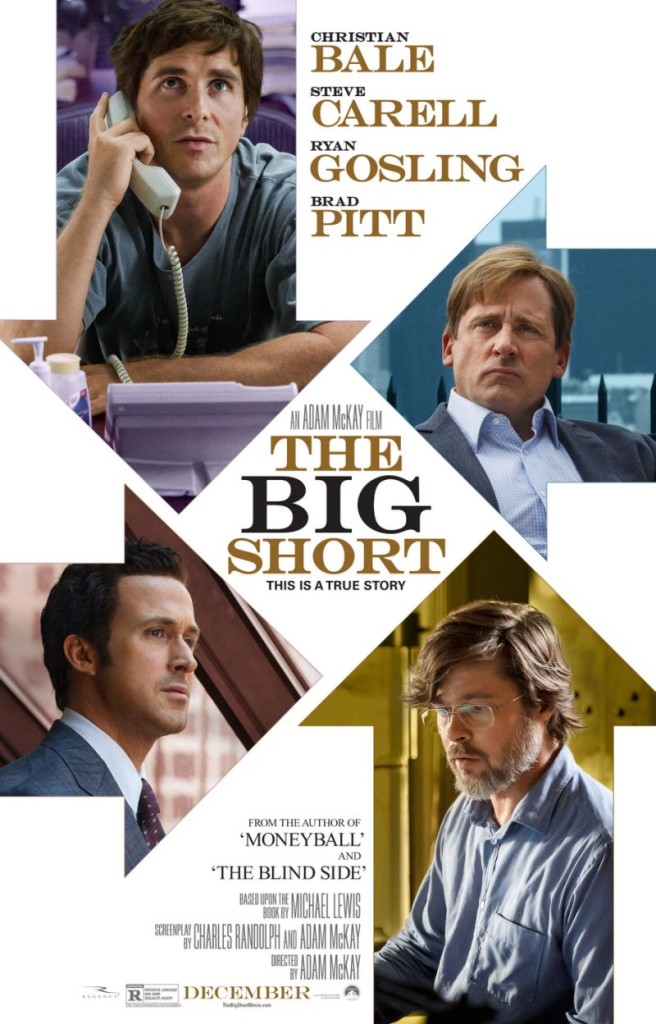
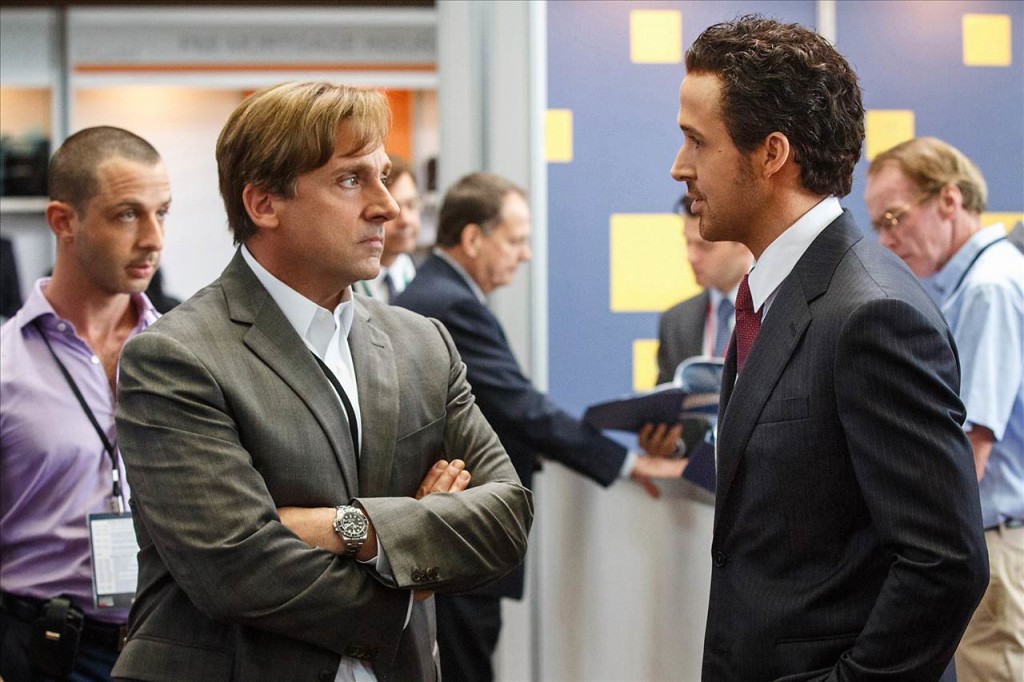
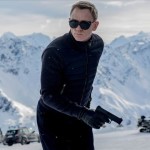 Review: ‘Spectre’
Review: ‘Spectre’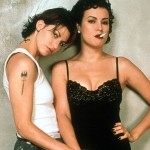 Netflix pick for 9/8/15 – ‘Bound’
Netflix pick for 9/8/15 – ‘Bound’ Crespodiso Spillover Episode – News Out The Wazoo
Crespodiso Spillover Episode – News Out The Wazoo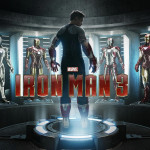 Review: ‘Iron Man 3’
Review: ‘Iron Man 3’
Leave a Reply
You must be logged in to post a comment.